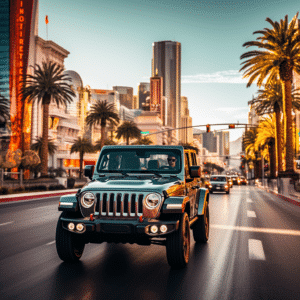 Accidents happen every day and car accidents are a normal sight on Las Vegas roads. Have you ever wondered if any of those accidents could have been avoided? If the accident was a rear-end crash the answer is yes. Yes, it is possible to avoid a rear-end collision. Here, we will provide our top tips to avoid a rear-end collision.
Accidents happen every day and car accidents are a normal sight on Las Vegas roads. Have you ever wondered if any of those accidents could have been avoided? If the accident was a rear-end crash the answer is yes. Yes, it is possible to avoid a rear-end collision. Here, we will provide our top tips to avoid a rear-end collision.
We hope the below tips help you avoid a rear-end collision. If a driver injures you or your loved ones in a rear-end accident, contact an experienced personal injury lawyer. A personal injury lawyer will help to protect your rights and ensure you receive maximum compensation.
As a Las Vegas accident victim, you don’t want to fight alone against insurance companies. They do not have your best interests in mind. Anthem Injury Lawyers has a dedicated team of lawyers and staff ready to help you with your personal injury case. Insurance companies and other parties are not interested in helping you receive what you should as a victim in a Las Vegas accident. Your Las Vegas accident lawyer should have a proven track record of winning cases like yours for significant compensation. Our lawyers offer you 25 years of experience winning top compensation for Las Vegas accident victims.
Time is of the essence when pursuing compensation in car accident cases. Don’t delay—have our Las Vegas accident lawyers review your case. Sometimes people avoid contacting an accident lawyer because they worry about cost. You don’t have to worry about affordability. Our attorneys don’t get paid unless they win your case. Contact Anthem Injury Lawyers at (702) 857-6000 to make an appointment for a free consultation.
Contact us today and we will help you get the compensation that you deserve.
Our Top Tips to Avoid a Rear-End Collision
A rear-end collision occurs when a vehicle crashes into the vehicle in front of it. Even a relatively minor collision can cause serious damage and significant injuries. The best way to avoid injury is to avoid a rear-end collision. Below are our top tips to avoid a rear-end collision.
Pay Attention
One of the leading causes of rear-end collisions is driver inattention. The best way to avoid a collision is to pay attention. Paying attention ensures that you have time to stop if another vehicle suddenly brakes in front of you. Safe driving requires you to keep your eyes on the road, your hands on the steering wheel, and your mind on the task of safe driving. Avoid doing any of the following when you are behind the wheel:
- Talking on the phone
- Texting
- Adjusting the temperature or stereo
- Having intense conversations with passengers
- Getting lost in thought
- Eating
- Drinking
- Using your hand to search for something in the car
- Applying makeup
Give Other Vehicles Space
Another cause of rear-end collisions is following too closely. When you are driving, make sure that you give other vehicles plenty of space. Giving other vehicles space gives you time to safely respond and brake in case another driver suddenly stops or swerves.
An easy rule to master to help with giving space is the 3-second rule. The 3-second rule means that you leave at least 3 seconds between you and the vehicle that you are following. To check if you have at least 3 seconds, do the following:
- Pick out a stationary object along the road.
- When the vehicle in front of you passes the object start counting. You can count by going: one Nevada, two Nevada, three Nevada.
- If you pass the object before you get to “three Nevada” then you are following too closely.
- Give the vehicle space by either slowing down or safely passing the vehicle.
Slow Down in Inclement Weather
Inclement weather can create dangerous driving conditions. Slowing down to a safe and cautious speed helps to give you time to look out for other drivers.
Rain and snow create slippery roads which make it more difficult to stop. Slippery roads also increase the likelihood that other drivers will try to stop suddenly or act unpredictably, resulting in an accident. Slowing down helps you maintain control on slippery roads.
Fog, dust storms, and sun glare can impact your vision and visibility. Decreased visibility means that you may not see a vehicle stopping until it is too late. If you slow down, you give yourself a chance to safely stop before an accident.
Stay Alert Around Certain Vehicles
Certain vehicles increase your likelihood of a rear-end collision. If you find yourself behind large vehicles or vehicles that stop frequently, stay alert and give them plenty of space.
A large vehicle like a semi-trailer truck can be difficult to see around. This means that you may not see an upcoming stop or hazard that forces the semi-trailer truck to stop suddenly.
You should be extra alert when you are behind a vehicle that stops frequently. Be patient and go slow to avoid having to slam on your brakes if you are following behind any of the following:
- School buses
- City buses
- Garbage trucks
- Delivery vehicles
- Postal vehicles
Proceed with Caution in Work Zones
Work zones can cause unpredictable road patterns, slow-downs, and sudden stops. If you are driving in work zones, use caution and expect the unexpected.
Practice Safe Driving

- Buckle up – Ensure passengers are properly restrained and wearing their seat belts.
- Pay attention – Focus on driving. Keep your hands on the wheel and your eyes on the road. If you pay attention you have more time to respond to your surroundings.
- Drive sober – Never drive under the influence of drugs or alcohol. Driving while impaired increases the likelihood that you will be involved in an accident.
- Drive the speed limit – Speeding makes it harder to safely stop or avoid hazards.
- Slow down gradually – Slamming on your brakes increases the likelihood that someone will slam into you. Slow down gradually when you are preparing to turn or approaching a stop sign, red light, or school zone.
- Check your lights – Your lights keep you visible to other cars. Your turn signals ensure that other vehicles are aware of your intended turns. Your brake lights let vehicles know when you are stopping. You should regularly check that your lights are in good working order.
- Use your turn signal – Your turn signals let other drivers anticipate your movements. Use your turn signal well in advance of a turn or lane change.
EXPERIENCED LAS VEGAS PERSONAL INJURY LAWYERS
We hope the above tips help you avoid a rear-end collision. If a driver injures you in a Las Vegas area accident, you should speak with an experienced personal injury lawyer. Some people wonder why they need a personal injury lawyer to help them. A personal injury lawyer will work aggressively to protect your rights and help you receive maximum compensation for your injuries.
Award-winning law firm Anthem Injury Lawyers is a team of experienced and dedicated personal injury lawyers. We are based in Henderson, Nevada, and serve clients throughout the Las Vegas area. When we say we offer personal injury law experience, we mean over 25 years of experience. This is the combination of knowledge and expertise you need to win significant compensation as a victim in a Las Vegas area accident. Our decades of experience, our expertise, plus our deep familiarity with all aspects of Nevada law, give you a powerful advantage. You will need that advantage to fight against those who may keep you from receiving what you deserve as a Las Vegas accident victim.
Your choice of an accident lawyer is one of the most consequential decisions you will ever make. It’s important to select a Las Vegas attorney that can put you in the best position to win your case. That’s why you need to speak with Anthem Injury Lawyers. Get the best accident attorneys in Las Vegas fighting for you. Our experts offer you the best opportunity to win top compensation. Contact Anthem Injury Lawyers today at (702) 857-6000 to make an appointment for a free consultation.
Last updated Wednesday, February 21st, 2024






